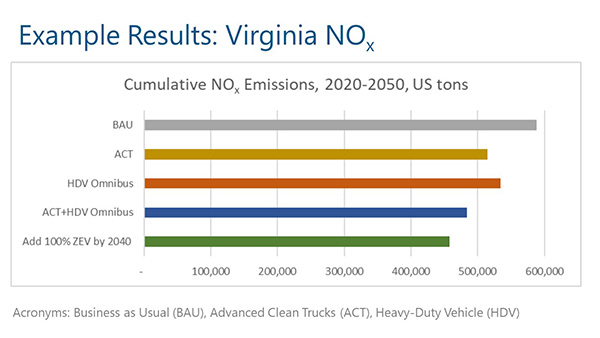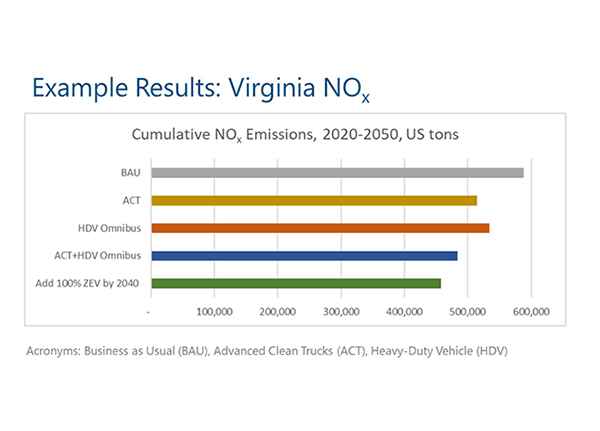Zero-Emission Vehicle (ZEV) Analysis Support for States Adopting California Requirements
Clients
International Council on Clean Transportation (ICCT)
Northeast States for Coordinated Air Use Management (NESCAUM)
The Clean Air Act allows California, home to the largest U.S. automotive market, to set its own vehicle emissions standards; it also empowers other states to adopt the California requirements. The Act’s provisions have helped controls issued by California yield widespread benefits across many states. In recent years, California has adopted landmark requirements to accelerate the adoption of zero-emission vehicles (ZEVs). As a result, many U.S. states, the District of Columbia, and the Canadian provinces of British Columbia and Quebec have considered adopting the California ZEV standards to reduce urban air pollutants and greenhouse gas (GHG) emissions.</p>
<a href="https://www.nescaum.org/" target="_blank">NESCAUM</a href>, a coalition of state air agencies, has helped jurisdictions in the U.S. work to adopt the California standards. NESCAUM contracted with <a href="https://theicct.org/" target="_blank">ICCT</a href> and Sonoma Technology (as an ICCT subcontractor) to complete in-depth assessments tailored to each jurisdiction. Sonoma Technology modeled how the California requirements would change vehicle fleets and emissions over time. We assessed car and truck requirements, including California’s (a) Advanced Clean Trucks (ACT) rule, which requires the sale of at least 30% zero-emission trucks by 2030; (b) Heavy-Duty Vehicle (HDV) Omnibus rule, which requires a 90% reduction in NO<sub>x</sub> emissions from Model Year 2027 engines; (c) Phase 2 GHG rule, which sets standards to improve the efficiency of tractor-trailers; and (d) Advanced Clean Cars II rule, which requires increased light-duty ZEV sales over time – at least 68% by 2030, and 100% by 2035.
<a href="https://www.nescaum.org/" target="_blank">NESCAUM</a href>, a coalition of state air agencies, has helped jurisdictions in the U.S. work to adopt the California standards. NESCAUM contracted with <a href="https://theicct.org/" target="_blank">ICCT</a href> and Sonoma Technology (as an ICCT subcontractor) to complete in-depth assessments tailored to each jurisdiction. Sonoma Technology modeled how the California requirements would change vehicle fleets and emissions over time. We assessed car and truck requirements, including California’s (a) Advanced Clean Trucks (ACT) rule, which requires the sale of at least 30% zero-emission trucks by 2030; (b) Heavy-Duty Vehicle (HDV) Omnibus rule, which requires a 90% reduction in NO<sub>x</sub> emissions from Model Year 2027 engines; (c) Phase 2 GHG rule, which sets standards to improve the efficiency of tractor-trailers; and (d) Advanced Clean Cars II rule, which requires increased light-duty ZEV sales over time – at least 68% by 2030, and 100% by 2035.
Related Links:
Climate
Emissions
Modeling
Policy and Planning
Transportation


